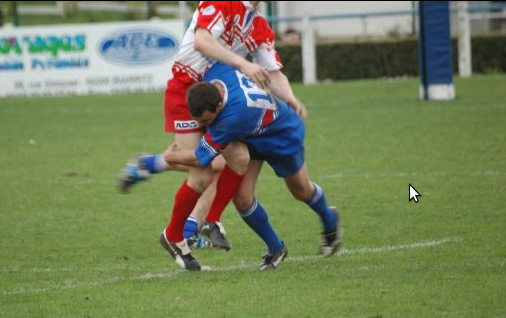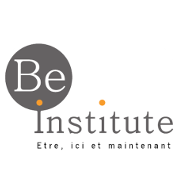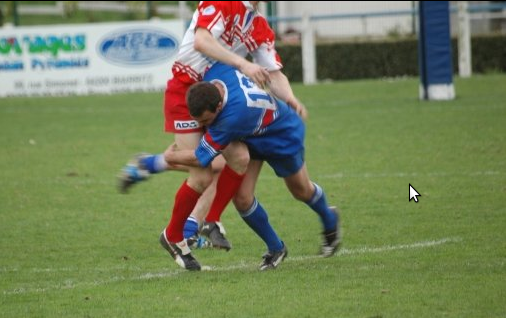l’attention
La MBSR est un programme qui entraîne à un état d’esprit ou une manière d’être appelée “pleine conscience”. C’est état d’esprit est bénéfique pour la santé et le bien être général, parce qu’il permet de comprendre son stress et son origine, de pacifier son mental . C’est un programme complet mais accessible qui s’étend sur 8 séances hebdomadaires, instruit par un instructeur diplômé, agréé pour la formation continue. Ce programme est accessible à tous, débutants comme confirmés.
Je m’inscris au prochain programme MBSR
MBSR is a program that leads to a state of mind or way of being called “mindfulness”. That mindset is beneficial to health and well being, because it helps to understand stress and its origin, to pacify the mind. This is a comprehensive but accessible program that extends over 8 weekly sessions, taught by a certified instructor, approved for in-service training. This program is open to all, beginners and experienced.
[expand title = “MBSR, what is it?” trigclass = “expandablecontenttrigger”] Quote: “The meditation or mind training is understood by meditators as a process of familiarization with one’s own mental activity, leading to profound and lasting changes in cognition and emotion.” (Extract from Lutz, Lawrence L. Greischar, Nancy B. Rawlings, Matthieu Ricard and Richard J. Davidson published in 2004 in Proceedings of the National Academy of Science, 101: 16369 -16373 .) The MBSR (Mindfulness Based Stress Reduction) method is a highly practical program designed to gain experience of meditation, and was developed at the encounter of the historical holders of contemplative Sciences (oriental masters experts in meditation) and Western neuroscientists who have studied the effects of meditation practice. Indeed, several branches of science (neuroscience, medical sciences, immunology) now show that living mindfully, paying attention to what we are doing here and now, in the present moment, has very positive effects on physical health as well as on mental health. In particular, the study of the effects of MBSR program has resulted in numerous scientific publications showing the benefits of the program. The mindfulness meditation has positive effects on immunity, mental health, physical health and daily well being. See below Scientific evidence. The initiator of this program, Jon Kabat-Zinn, Professor University of Medicine and Director of the Center for Mindfulness in Medicine, Health Care, and Society at the University of Massachusetts said: “I like to think of mindfulness simply as the art of conscious living.”
[/expand] [expand title = “Scientific evidence” trigclass = “expandablecontenttrigger” id = “preuvesscientifiques”] The University of WisconsinMadison, the University of Massachusetts (whose research is reviewed here), and Princeton, Harvard and Berkeley, as well as centers in Zurich and in Europe, Maastricht, are conducting intensive research on meditation and its effect on the brain in the short and long term, and have shown that human skills can be deliberately cultivated by training the mind. A growing number of scientific studies also indicate that the practice of meditation in the short term reduces stress, anxiety, tendency to anger and the risk of relapse in people who have previously experienced at least two episodes of depression [Lutz et al. 2004] (see post on beinstitute.fr ) measured, during meditation, sustained and high amplitude self-induced electroencephalographic gamma wave and phase synchronization that were not present in the initial state before meditation. Eight weeks of MBSR meditation type, for thirty minutes a day, is accompanied by a significant strengthening of the immune system, positive emotions [Davidson et al . 2003; Lutz Greischar, Rawlings, Ricard, & Davidson, 2004; Ekman, Davidson, Ricard & Alan Wallace, 2005; Brefczynski-Lewis, Lutz, Schaefer, Levinson & Davidson, 2007] , and attention faculties [Jha & Krompinger Baim 2007; Slagter et al. 2007; Lutz, Slagter, Dunne & Davidson, 2008] , and a decrease in blood pressure in hypertensive subjects [Carlson, Speca, Patel & Faris 2007] , and accelerating the healing of psoriasis [Grossman et al. 2004] . Scientific research shows increasing interest in the study of the influence of mental states on health [Lutz, Dunne & Davidson 2007] .
References
Brefczynski-Lewis, J. A., Lutz, A., Schaefer, H. S., Levinson, D. B. & Davidson, R. J. ( 2007 ). Neural Correlates of attentional expertise in long-term meditation Practitioners , Proceedings of the National Academy of Sciences 104: 11483-11488. Carlson, L. E., Speca, M., Faris, P. & Patel, K. D. ( 2007 ). One year pre-post intervention follow-up of Psychological, immune, endocrine and blood pressure outcomes of mindfulness-based stress reduction (MBSR) in breast and prostate cancer outpatients , Brain, Behavior, and Immunity 21: 1038 to 1049. Davidson, R. J., Kabat-Zinn, J., Schumacher, J., Rosenkranz, M., Muller, D., Santorelli, S. F., Urbanowski, F., Harrington, A., Bonus, K. & Sheridan, J. F. ( 2003 ). Alterations in Brain and Immune Function Produced by Mindfulness Meditation , Psychosomatic Medicine 65: 564-570. Ekman, P., Davidson, R. J., Ricard, M. & Alan Wallace, B. ( 2005 ). Buddhist and Psychological Perspectives on Emotions and Well-Being , Current Directions in Psychological Science 14: 59-63. Grossman, P., Niemann, L., Schmidt, S. & Walach, H. ( 2004 ). Mindfulness-Based Stress Reduction and Health Benefits: A meta-analysis , Journal of Psychosomatic Research 57: 35-43. Jha, A.; Krompinger, J. & Baim, M. ( 2007 ). Mindfulness training modified subsystems of attention , Cognitive, Affective, Behavioral Neuroscience & 7: 109-119. Kenny, M. & Williams, J. ( 2007 ). Treatment-resistant depressed patients show a good response to Mindfulness-based Cognitive Therapy , Behaviour Research and Therapy 45: 617 – 625. Lutz, A., Dunne, J. & Davidson, R. J. ( 2007 ). Meditation & the Neuroscience of Consciousness: An Introduction . In: The Cambridge Handbook of Consciousness , Cambridge. Lutz, A.; Greischar, L. L., Rawlings, N. B., Ricard, M. & Davidson, R. J. ( 2004 ). Long-term meditators Self-Induce high-amplitude gamma synchrony Düring mental practice , Proceedings of the National Academy of Sciences 101: 16369-16373. Lutz, A., Slagter, H. A., Dunne, J. D. & Davidson, R. J. ( 2008 ). Attention regulation and monitoring in meditation , Trends in Cognitive Sciences 12: 163-169. Sephton, S. E., Salmon, P.; Weissbecker, I., Ulmer, C., Floyd, A., Hoover, K. & Studt, J. L. ( 2007 ). Mindfulness meditation Alleviates depressive Symptoms in Women with fibromyalgia: Results of a randomized clinical trial , Arthritis Care & Research 57: 77-85. Slagter, H. A., Lutz, A.; Greischar, L. L., Francis, A. D., Nieuwenhuis, S., Davis, J. M. & Davidson, R. J. ( 2007 ). Mental Training Affects Distribution of Limited Brain Resources , PLoS Biol 5: E138. Teasdale, J. D., Moore, R. G., Hayhurst, H., Pope, M., Williams, S. & Segal, Z. V. ( 2002 ). Metacognitive Awareness and Prevention of relapse in depression: Empirical evidence. , Journal of Consulting and Clinical Psychology 70: 275-287. [/expand] [expand title = “What is the content of the program?” trigclass = “expandablecontenttrigger”] The result of the encounter and researches of contemplatives and scientists is the MBSR: a program for development of attention, practical and highly participatory, which includes: – An information session and presentation from 1:30 open to all: free admission. – 8 2:30-sessions (1 session per week for 8 weeks) + 1 full day course
- Instructions and guided meditation practices of mindfulness
- Soft stretches and aware yoga
- Dialogues and group discussions aimed at improving attention in everyday life
– Individual customized instructions – Instructions for practicing at home – 4 CD a manual for practicing at home It is an intensive training that leads participants to use their own inner resources and their natural abilities to become actively involved in caring for them and to find a better balance, comfort and tranquility of mind.
[/expand] [expand title = “Who is the MBSR designed for?” trigclass = “expandablecontenttrigger”] The MBSR program is suitable for those wishing to explore what meditation with a simple yet profound and complete method. The MBSR program is also suited to those who already have some meditation experience but wish to strengthen the basis of their practices. More particularly, the MBSR program is aimed at: Athletes (as part of mental preparation): 

- improved concentration
- improved presence in the field, better tactical and strategic reading
- presence allows a better development of the technique during training
- presence allows a better development of proprioception
Men and women business managers: being fully present allows us to optimize our ability to:
- slow or halt the cascade of our automatic reactions and routine
- see ourselves and see others more clearly
- listen deeply and understand situations as they really are
- be open to creativity beyond our conditioning
- respond effectively to complex and loaded situations on an emotional level
- act with competence and ethics
- achieve balance and resilience in our personal and professional life
- MBSR is a stress management technique! What else?
- improved concentration
- development of lucidity and insight, useful for decision making
Caregiver:
- Improved listening to patients
- Better stress and human situations management
Cared for:
- Decrease
- sustainable physical and psychological symptoms
- Increased ability to relax
- Decreased levels of pain and increased ability to manage chronic pain
- More energy and enthusiasm
- Improved self-esteem
People of the artistic professions:
- mindfulness develops intuition, concentration and creativity.
To all those who want to be more present in their lives to make better decisions, develop their intuition, their calmness, their insight and develop their appreciation. Since 1979, more than 19,000 people have completed the 8-week program of stress reduction by mindfulness. The description of MBSR program by the Medical School of the University of Massachusetts.
[/expand] [expand title = “Who is the instructor?” trigclass = “expandablecontenttrigger”] The instructor Stéphane Faure has great achievings in meditation and is qualified to create a supportive, reassuring and very motivating learning environment. The proposed program is approved for in-service training and is eligible for Individual Right to Training (DIF) (more info on DIF: here and here ) and is within the scope of prevention of psychosocial risks. To see the page display the official approval for this training, click here. Contact Us if you need information.
[/expand] [expand title=”Bibliography” trigclass=”expandablecontenttrigger” id=”biblio”] L’éveil des sens : Vivre l’instant présent grâce à la pleine conscience Jon Kabat-Zinn, Matthieu Ricard & Olivier Colette Méditer pour ne plus déprimer. La pleine conscience, une méthode pour vivre mieux. Mark Williams, John Teasdale, Zindel Segal & Jon Kabat-Zinn Existe avec un CD de méditation: Méditer pour ne plus déprimer : La pleine conscience, une méthode pour vivre mieux (1CD audio) La thérapie cognitive basée sur la pleine conscience pour la dépression : Une nouvelle approche pour prévenir la rechute Zindel Segal, J-Mark-G Williams, John Teasdale & Collectif Au coeur de la tourmente, la pleine conscience – MBSR, la réduction du stress basée sur la mindfulness : programme complet en 8 semaines Jon Kabat-Zinn, Christophe André & Claude Maskens Où tu vas, tu es – Apprendre à méditer pour se libérer du stress et des tensions profondesJon Kabat-Zinn [/expand] [expand title = “Inspiration” trigclass = “expandablecontenttrigger”] Quote, Sri Maharaj, Indian Master, exerpt from “I am that”: “A quiet mind is all you need. All else will happen rightly, once your mind is quiet. As the sun on rising makes the world active, so does self-awareness affect changes in the mind. In the light of calm and steady self-awareness inner energies wake up and work miracles without any effort on your part.”
[/expand] [expand title=”I join the next MBSR program” expanded=”true” trigclass=”expandablecontenttrigger” id=”janvier2012″ id=”inscription”]
MBSR program on thursdays in april 2013
INSCRIPTION : <!–:fr–>Programme de méditation MBSR avril 2013<!–:–>
Date: 5 Apr 2013 - 19:30 Tarif: 430 €. A noter que l'argent ne doit pas faire obstacle à votre participation au programme MBSR, aussi dans le cas de difficultés financières, un paiement en plusieurs fois ou un arrangement est envisageable. Notez aussi que ce programme est une formation éligible au DIF (droit individuel à la formation) sous le numéro 83630411563, consultez votre employeur ou votre structure pour obtenir un financement. N'hésitez pas à nous contacter pour toute information complémentaire. Lieu: AngletCe programme de méditation MBSR est proposé par le BE institute en septembre 2012. Ce programme s’appuie sur la technique de méditation de la pleine conscience et s’étend sur 8 semaines à raison d’une session par semaine. Pour en savoir plus, consultez la description du programme de méditation MBSR sur cette page.
La session d’information et présentation a lieu le 22 mars 2013 de 19 h 30 à 21 h 00 (Entrée libre, séance ouverte à tous).
Les 8 sessions seront vendredis (19 h 30 – 22 h) 5, 12, 19 et 26 avril et 3, 17, 24 et 31 mai 2013.
La journée de pratique (9 h 30 – 17 h) est le samedi 25 mai 2013.
L’instructeur, Stéphane Faure, est agréé pour la formation continue (renseignez-vous auprès de votre structure pour un financement éventuel). Pour voir son profil cliquez ici.
Ce programme de méditation MBSR est proposé par le BE institute en Septembre 2011. Ce programme s’appuie sur la technique de méditation de la pleine conscience et s’étend sur 8 semaines à raison d’une session par semaine. Pour en savoir plus, consultez la description du programme de méditation MBSR sur cette page. La session d’information et présentation a lieu le 7 décembre 2012 de 19 h 30 à 21 h 00 (Entrée libre, ouvert à tous). Les 8 sessions sont tous les vendredis (19 h 30 – 22 h) du 4 janvier au 22 février 2013. La journée de pratique (9 h 30 – 17 h) est le samedi 9 février 2013. L’instructeur, Stéphane Faure, est agréé pour la formation continue (renseignez-vous auprès de votre structure pour un financement éventuel). Pour voir son profil cliquez ici.


